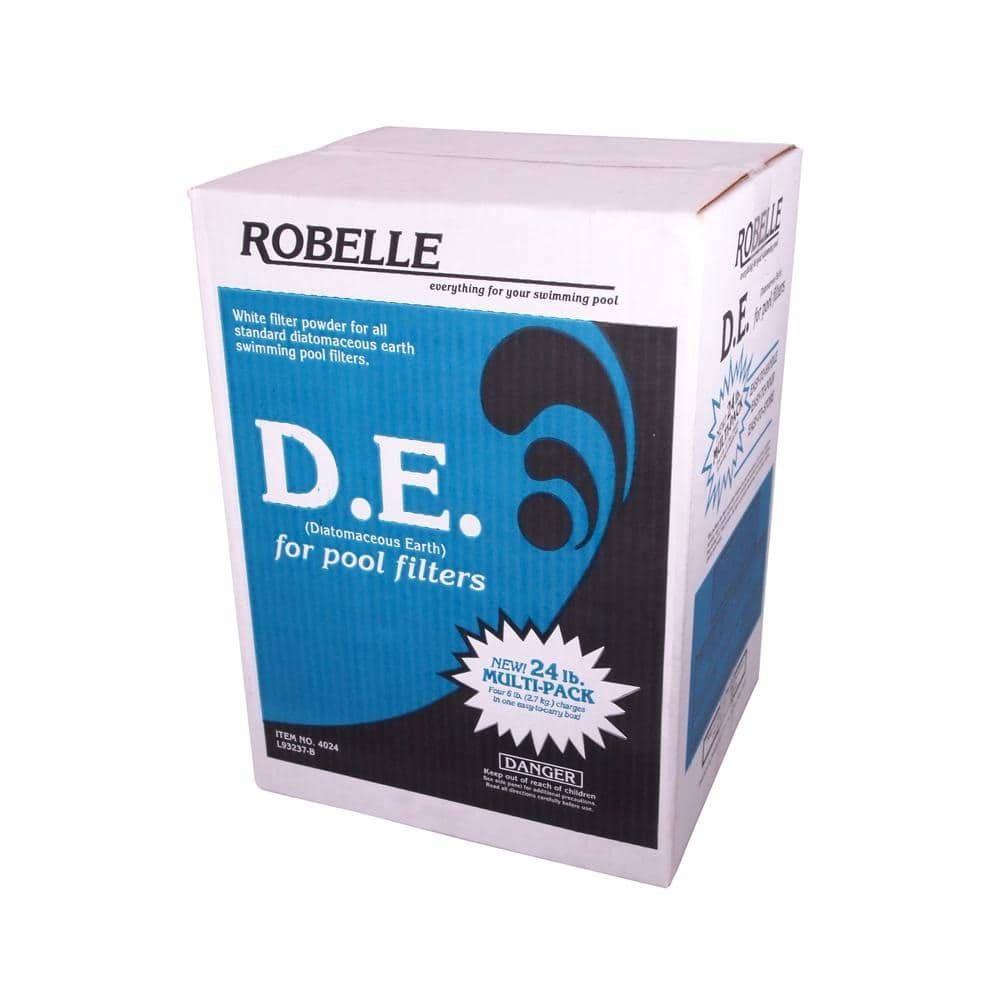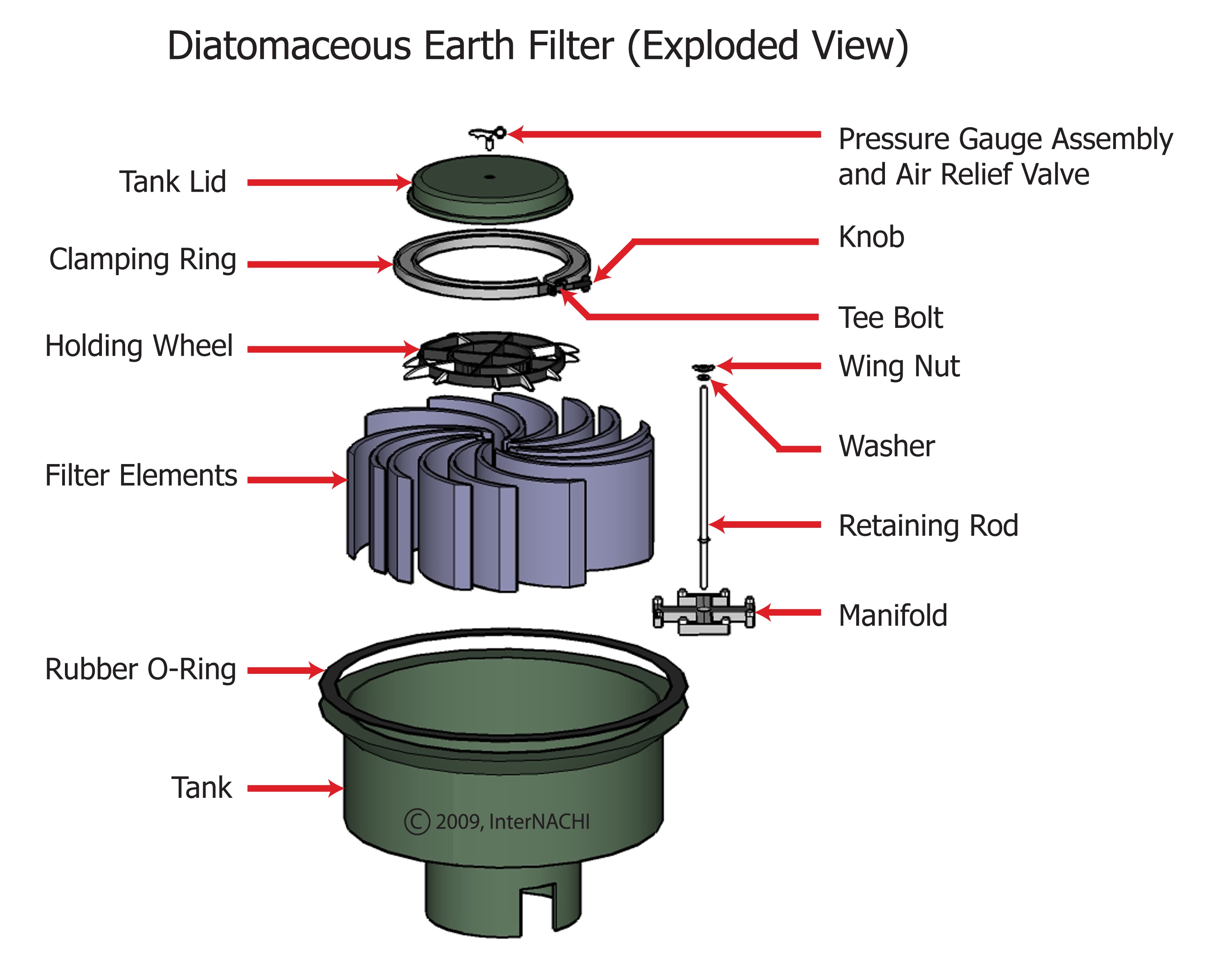Opening the Advantages of Diatomaceous Planet Filtering System for Pure and Tidy Water
The expedition of diatomaceous earth (DE) filtering system provides a compelling choice for those seeking sustainable and reliable water filtration techniques. As the demand for tidy water continues to climb worldwide, recognizing the diverse applications and benefits of DE filters might expose essential insights for both family and commercial usage.
What Is Diatomaceous Earth?
Diatomaceous earth, commonly described as DE, is a naturally occurring sedimentary rock composed largely of the fossilized remains of small, water organisms referred to as diatoms. These single-celled algae are abundant in silica, which is the primary component of DE. The special framework of diatomaceous earth consists of tiny, porous bits that offer a high area, making it an effective filtering system tool.
DE is usually collected from old lake beds and deposits, which have built up over thousands of years. It looks like a fine, white to off-white powder, and its chemical structure mainly consists of silicon dioxide, in addition to trace quantities of different minerals. This composition is what offers DE its impressive homes.
In enhancement to its application in water filtering, diatomaceous planet is made use of in a range of markets, including farming, food storage space, and insect control. Its ability to absorb dampness and its abrasive top qualities make it a beneficial source in these areas. Generally, diatomaceous planet attracts attention as an ecologically friendly choice for various applications as a result of its all-natural beginning and performance in purification processes.

Just How Diatomaceous Planet Filtering Functions

When water passes with a diatomaceous earth filter, the great fragments are caught in the detailed network of little pores. The shapes and size of these pores are important, as they are made to target specific pollutants while enabling tidy water to flow through. As water steps with the filter medium, the mechanical action of the diatomaceous planet captures larger fragments, while smaller pollutants are soaked up or literally blocked.
Moreover, the surface area given by diatomaceous earth is substantial, improving its capability to hold contaminations. This leads to a steady build-up of trapped bits, which can be occasionally gotten rid of through a backwashing process. This approach makes sure consistent purification effectiveness and contributes to the overall effectiveness of preserving clean and pure water.
Advantages Over Traditional Filtration
When comparing diatomaceous planet filtering to conventional purification approaches, several benefits arise that boost water filtration performance. One of the primary benefits is the superior filtering capacity of diatomaceous earth (DE), which can remove smaller sized fragments and impurities that standard filters may miss. The tiny framework of DE allows it to record impurities, including germs and protozoa, causing cleaner water.
Furthermore, diatomaceous planet filters tend to have a longer lifespan than typical media, minimizing the frequency of substitute and maintenance. This durability not only decreases operational prices but likewise lessens waste, adding to more sustainable methods. DE filters also operate at reduced stress, which can lead to energy cost savings in large applications.
One more considerable benefit is the flexibility of diatomaceous planet. It can be used successfully in numerous contexts, from metropolitan water therapy facilities to specialized industrial applications (diatomaceous earth filtering). The all-natural make-up of DE makes it an eco-friendly alternative, without damaging chemicals and contaminants often related to artificial purification systems
Applications in House and Market
Countless applications of diatomaceous planet filtering can be located in both household and commercial settings, highlighting its adaptability and efficiency in water purification. In residential settings, diatomaceous planet (DE) filters are frequently used in swimming pools, successfully catching debris and microbes, thus preserving water quality and hygiene. Additionally, lots of houses make use of DE in home water filtering systems, where it serves to get rid of pollutants, sediment, and look here harmful microorganisms, making sure risk-free drinking water.
In commercial applications, diatomaceous earth filtering system is essential to numerous sectors, consisting of food and drink production, drugs, and wastewater therapy. In the food industry, DE is used in the filtration of beer and red wine, promoting the elimination of yeast and other particulates while maintaining the drink's taste account. In addition, in wastewater therapy facilities, DE filters play an important duty in boosting water high quality by capturing contaminants and assisting in the recycling of water resources.
The performance of diatomaceous planet in both household and commercial applications underscores its invaluable function in promoting tidy water access, adding to public health, and supporting sustainable techniques.

Picking the Right DE Filter
Picking the ideal diatomaceous earth (DE) filter is crucial for ensuring ideal water purification, whether for industrial or domestic usage. diatomaceous earth filtering. The option of a DE filter depends upon numerous vital elements, consisting of the certain application, flow rate needs, and the desired degree of filtration
First, analyze the quantity of water to be filtered. For domestic use, smaller sized filters are sufficient, while commercial applications may demand larger, high-capacity systems. Next, consider the circulation rate; it is necessary to pick a filter that can handle the required throughput without compromising water quality.
In addition, assess the filtering degree; DE filters come in numerous grades, influencing the elimination of pollutants and particulates. Higher-grade filters are excellent for applications requiring strict purity degrees.
Lastly, think about the maintenance needs and the accessibility of replacement DE powder. Filters that are less complicated to preserve and have easily offered products will certainly reduce downtime and functional expenses. By carefully thinking about these factors, one can pick a DE filter that meets details requirements, ensuring the delivery of tidy and secure water.
Final Thought
In recap, diatomaceous planet filtering stands for a substantial advancement in water pop over to this site purification technology, offering improved performance and efficiency in catching pollutants. Its one-of-a-kind porous framework helps with superior filtering, while its environmentally friendly residential or commercial properties add to sustainability. The long life and reduced operational pressures of DE filters promote energy financial savings, making them a viable option for different applications in both property and industrial setups. Welcoming diatomaceous planet filtering can cause improved public health and wellness results and better accessibility to clean water.
The expedition of diatomaceous planet (DE) filtering offers a compelling alternative for those looking for sustainable and efficient water filtration approaches.When contrasting diatomaceous earth filtering to look these up traditional filtration approaches, a number of benefits emerge that improve water filtration efficiency.Countless applications of diatomaceous earth filtering can be discovered in both home and commercial setups, highlighting its versatility and performance in water purification. In domestic environments, diatomaceous earth (DE) filters are typically utilized in swimming pools, efficiently capturing particles and microorganisms, thus keeping water quality and hygiene. In wastewater therapy centers, DE filters play an essential role in enhancing water quality by capturing impurities and assisting in the recycling of water sources.